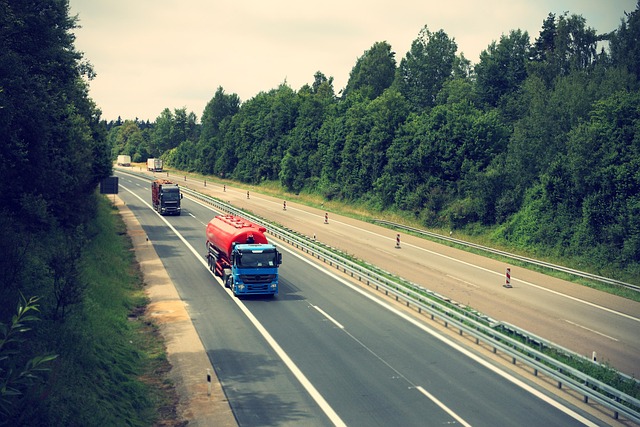Category: Multi-Truck Policies for Small Businesses
Understanding Multi-Truck Policies for Small Businesses
Small businesses often operate within tight budgets and resource constraints, making efficient use of assets critical for success. Multi-Truck Policies are strategic frameworks designed to optimize the deployment and management of a small business’s fleet of vehicles. These policies encompass a range of operational, financial, and logistical considerations to ensure that each truck is used effectively, reducing unnecessary costs while maximizing delivery capacity and reliability.
The core components of Multi-Truck Policies include vehicle routing, load optimization, maintenance scheduling, driver management, and fuel efficiency strategies. These policies are not new but have evolved over time with advancements in technology and changes in market demands. Historically, small businesses might have relied on a single vehicle for all their logistical needs. However, as competition increased and customer expectations rose, the need for more sophisticated approaches to fleet management became apparent.
Multi-Truck Policies are significant because they enable small businesses to scale operations efficiently, adapt to fluctuating demands, and improve service delivery without the overhead of a large fleet typically associated with larger enterprises. By implementing these policies, small businesses can compete effectively in various markets, from local deliveries to cross-border trade.
Global Impact and Trends
The impact of Multi-Truck Policies for Small Businesses is felt worldwide, as global trade dynamics continue to shift. E-commerce has revolutionized consumer behavior, leading to a surge in demand for last-mile delivery services. This trend has compelled small businesses to adopt more sophisticated fleet management strategies.
In North America and Europe, there’s a growing emphasis on sustainable practices, pushing businesses to optimize routes and reduce emissions. In contrast, emerging markets like Asia and Africa are rapidly urbanizing, creating opportunities for small businesses to capitalize on the growing need for logistical services.
Economic Considerations
From an economic standpoint, Multi-Truck Policies can significantly influence market dynamics. Efficient fleet management reduces operational costs, allowing small businesses to compete with larger entities on price without compromising on quality. Investment in technology for route optimization and predictive maintenance can lead to substantial savings over time.
These policies also play a role in economic systems by creating jobs and fostering entrepreneurship. A well-managed fleet can lead to increased customer satisfaction, repeat business, and growth opportunities for small businesses.
Technological Advancements
Technology has been a game-changer for Multi-Truck Policies. GPS tracking systems have improved route optimization, while telematics devices provide real-time data on vehicle performance and driver behavior. Artificial intelligence (AI) and machine learning algorithms can predict maintenance needs and optimize delivery schedules.
The future potential of technology in this field includes autonomous vehicles, advanced analytics for demand forecasting, and the integration of blockchain for secure, transparent supply chain management. These advancements will further enhance the efficiency and reliability of small business fleets.
Policy and Regulation
Policies and regulations govern the operation of commercial vehicles, affecting how Multi-Truck Policies are implemented. Compliance with environmental regulations, such as emissions standards, is critical. Additionally, labor laws impact driver hiring, training, and management practices.
Internationally, the United Nations Economic Commission for Europe (UNECE) has established regulations like the WVTA (Whole Vehicle Type Approval), which affects how vehicles are approved for international transport. The Federal Motor Carrier Safety Administration (FMCSA) in the U.S. sets regulations for driver hours and vehicle maintenance, impacting national operations.
Challenges and Criticisms
Multi-Truck Policies face several challenges, including high initial costs for technology implementation, the need for skilled labor to manage complex systems, and the complexity of regulatory compliance. Additionally, there are criticisms regarding the environmental impact of vehicle emissions and the potential for job displacement due to automation.
To address these issues, businesses can invest in lower-emission vehicles, provide training for employees to work with new technologies, and advocate for policies that support small businesses. Collaborative efforts among stakeholders can also lead to shared solutions, reducing the overall impact on the economy and environment.
Case Studies
Several case studies illustrate the successful application of Multi-Truck Policies. One such example is a small logistics company in Europe that optimized its routes using advanced analytics, reducing fuel consumption by 15% and improving delivery times by 20%. Another case involves a U.S.-based e-commerce company that implemented a fleet management system, resulting in a 30% reduction in operational costs and increased customer satisfaction rates.
Future Prospects
The future of Multi-Truck Policies for Small Businesses is promising. With advancements in technology and an increasing emphasis on sustainability, small businesses can expect to see continued improvements in efficiency and reduced environmental impact. The rise of electric vehicles and alternative fuels will further shape the industry, as will the integration of AI and IoT (Internet of Things) for smarter fleet management.
Small businesses that embrace these changes and stay compliant with regulations will be well-positioned to thrive in an ever-evolving market. The adaptability of Multi-Truck Policies ensures that small businesses can scale their operations up or down as needed, maintaining a competitive edge in the logistics sector.
In conclusion, Multi-Truck Policies for Small Businesses are a critical component of modern fleet management. They offer a scalable solution for small businesses to efficiently handle logistics operations, adapt to market demands, and compete on a global stage. With a focus on technology, sustainability, and compliance, these policies will continue to evolve and provide significant benefits to small businesses and the broader economy.
Balancing Cargo Insurance: Flexibility & Affordability for Small Businesses

Multi-truck policies offer small logistics businesses tailored cargo insurance solutions, addressing…….
Mastering Multiple Vehicle Coverage: Tips for Optimized Premiums

Multiple vehicle coverage offers cost savings and simplified management through bundled policies, bu…….
Navigating Liability Coverage for Fleets: Comprehensive Guide to Compliance

In today’s regulated business landscape, companies with multiple vehicles face complex compliance re…….
Fostering Collaboration: Tailored Small Business Truck Insurance Solutions

Small businesses with multi-truck operations face challenges in securing adequate insurance due to d…….
Mastering Long-Term Multi-Truck Management: Physical Damage Policies & Beyond

Physical damage policies are essential for multi-truck fleet management, protecting against financia…….
Optimizing Safety: Fleet Insurance Plans for Small Multi-Truck Operations

Small multi-truck operations face significant liability challenges due to their size and independent…….
Mastering Physical Damage Policies for Business Vehicle Fleets

For businesses managing fleets, adhering to compliance requirements is vital to avoid legal issues a…….
Protecting Multi-Truck Businesses: Physical Damage Policies for Resilience

Multi-truck small businesses face unique risks, with immediate threats including vehicle physical da…….
Maximizing Protection: Multi-Truck Insurance for Small Businesses’ Success

Small businesses with fleets of multiple trucks face heightened risks, including increased accident…….
